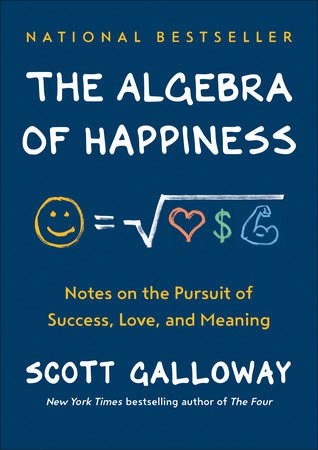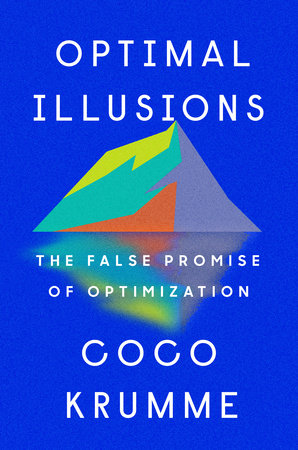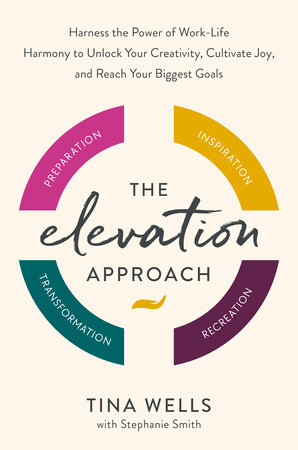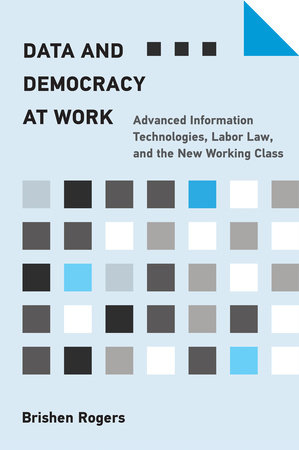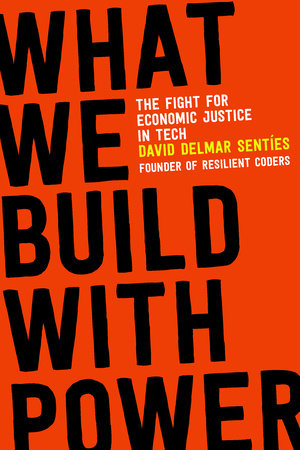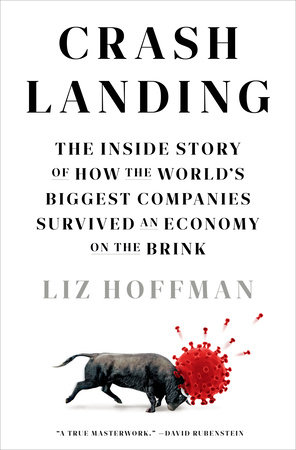The Algebra of Happiness by Scott Galloway is about the pursuit of success, happiness, and the balance between life and work. Galloway, a professor and entrepreneur, offers unconventional advice, challenging the traditional notion that wealth and fame equate to happiness.
People often think that a high-paying job and financial wealth are the main indicators of success and happiness. However, Galloway argues that true happiness comes from relationships, passion for one’s work, and health. That means success is more about personal fulfillment and well-being than just accumulating wealth or professional accolades.
In this summary, you’ll learn that happiness is not a one-size-fits-all formula, but rather a unique blend of professional success, personal relationships, and self-awareness. Galloway emphasizes the importance of emotional intelligence, resilience, and the pursuit of a career that aligns with personal values and passions.
I recommend The Algebra of Happiness for individuals seeking a deeper understanding of what it means to be truly happy beyond material success. It’s a must-read for professionals at any stage of their career, particularly those reevaluating their life choices and seeking a more meaningful and balanced life.
Five Key Ideas in The Algebra of Happiness
Here are the five key ideas I found in the book:
1. Happiness is not a result of wealth: Galloway argues that while financial stability is important, it’s not the primary source of happiness. True contentment comes from relationships, health, and fulfilling work.
2. The importance of emotional intelligence: The book highlights the significance of understanding and managing your emotions, as well as recognizing and empathizing with the emotions of others, as a crucial component of success and happiness.
3. Work-life balance is crucial: Galloway emphasizes that finding a balance between professional ambitions and personal life is key to long-term happiness. Neglecting personal relationships for work can lead to unhappiness.
4. Pursue a career aligned with your passions: Happiness in professional life is more likely when you are engaged in work that you are passionate about and that aligns with your personal values.
5. Resilience in the face of adversity: The ability to recover from setbacks and maintain a positive outlook is essential for both professional success and personal happiness. Galloway discusses the importance of resilience and adaptability in life’s journey.
Idea #1: Happiness is not a result of wealth
This idea challenges the conventional belief that wealth equates to happiness. Scott Galloway, in “The Algebra of Happiness,” emphasizes that while money can provide comfort and security, it is not the sole or even primary contributor to genuine happiness. The significance of this idea lies in its ability to redirect the reader’s focus from purely financial ambitions to more holistic life goals.
Galloway provides detailed examples from both his personal experiences and broader observations. He discusses how people often sacrifice personal relationships, health, and well-being in the pursuit of wealth, only to find that these sacrifices do not lead to the expected level of happiness. Instead, he argues that investing in relationships, personal health, and finding purpose in work are more fulfilling and sustainable paths to happiness.
“Wealth is not a prerequisite for a meaningful life. Instead, meaningful relationships, health, and passion in your work are the cornerstones of happiness.” – Scott Galloway, The Algebra of Happiness
Key points related to this idea include:
- Redefining Success: Success should not be measured only by financial metrics but also by the quality of relationships, personal growth, and fulfillment.
- Investing in Relationships: Building and maintaining strong relationships is crucial for happiness, as human connections provide support, love, and a sense of belonging.
- Health and Well-being: Physical and mental health are fundamental to happiness. Neglecting health for wealth can lead to long-term dissatisfaction.
Redefining Success
Success is often narrowly defined in terms of wealth and professional achievements. Galloway argues for a broader definition that includes personal satisfaction, emotional well-being, and the quality of one’s relationships. This expanded view of success encourages a more balanced approach to life.
For example, Galloway talks about individuals who have achieved professional success but feel unfulfilled because they’ve neglected other aspects of their lives. He suggests looking beyond material success to find true contentment.
“Measure success in new ways that go beyond money and power.” – Scott Galloway, The Algebra of Happiness
Investing in Relationships
Galloway emphasizes the importance of relationships in achieving happiness. He argues that strong, supportive relationships are more fulfilling than any material success.
The book provides examples of people who prioritized work over personal relationships and later regretted it. Galloway advises investing time and effort in nurturing relationships with family, friends, and community.
“The strongest predictor of happiness is the quality of our relationships.” – Scott Galloway, The Algebra of Happiness
Health and Well-being
Physical and mental health are foundational to happiness. Galloway warns against sacrificing health for career advancement or wealth accumulation. He stresses the importance of self-care, regular exercise, and mental health.
Galloway shares personal anecdotes about how prioritizing health improved his overall life satisfaction. He encourages readers to see health as an investment in their long-term happiness.
“Your physical and mental health are the bedrock upon which all other forms of happiness are built.” – Scott Galloway, The Algebra of Happiness
Idea #2: The importance of emotional intelligence
Emotional intelligence (EI) is a pivotal concept in “The Algebra of Happiness,” where Scott Galloway asserts its importance in achieving both personal and professional success. The idea is important because EI involves understanding and managing one’s emotions and the emotions of others, fostering better communication, empathy, and relationships, which are key to happiness and success.
Galloway uses examples from both business and personal contexts to illustrate the power of EI. He describes how leaders with high EI tend to create more harmonious, productive work environments, leading to better team performance. In personal life, EI enhances relationships and personal well-being.
“Emotional intelligence is more than just a ‘soft skill’; it’s a crucial tool for navigating life’s challenges and building strong relationships.” – Scott Galloway, The Algebra of Happiness
Key aspects of emotional intelligence include:
- Self-awareness: Understanding one’s emotions, strengths, and weaknesses.
- Self-regulation: Managing emotions in healthy ways.
- Empathy: Understanding and sharing the feelings of others.
- Social skills: Building and maintaining relationships.
Self-awareness
Self-awareness is the foundation of EI. It involves recognizing and understanding one’s emotions, triggers, and responses. Galloway suggests that self-awareness leads to better decision-making and life choices.
In the book, Galloway shares instances where self-awareness helped him recognize his limitations and strengths, guiding him to make more informed and emotionally intelligent decisions.
“Knowing yourself is the beginning of all wisdom.” – Aristotle, often cited in discussions of self-awareness
Self-regulation
Self-regulation is about managing emotions and impulses. Galloway discusses how individuals who master this can handle stress and adversity more effectively. He stresses that self-regulation is key to maintaining professional and personal relationships.
For example, Galloway talks about a professional setback and how managing his emotions helped him to respond constructively rather than reactively.
“The ability to control your emotions and actions sets the stage for a life of resilience and success.” – Scott Galloway, The Algebra of Happiness
Empathy
Empathy, the ability to understand and share the feelings of others, is crucial in building strong relationships. Galloway highlights how empathy can lead to more effective communication and deeper connections.
The book provides examples of how empathy in the workplace leads to better teamwork and leadership. Galloway shares stories illustrating how empathy improved his interactions and relationships.
“Empathy is about finding echoes of another person in yourself.” – Mohsin Hamid, often referenced in discussions of empathy
Social Skills
Effective social skills are essential for building and maintaining relationships. Galloway points out that these skills, including effective communication and conflict resolution, are critical for personal and professional success.
Galloway provides examples from his career where strong social skills facilitated better teamwork and leadership, highlighting their importance in various life aspects.
“Good social skills are the foundation of building meaningful relationships.” – Scott Galloway, The Algebra of Happiness
Idea #3: Work-life balance is crucial
Work-life balance is a central theme in “The Algebra of Happiness.” Scott Galloway explores how maintaining a balance between professional ambitions and personal life is essential for long-term happiness and well-being. This idea is significant because it addresses the common pitfall of overemphasizing career success at the expense of personal relationships and health.
Galloway shares anecdotes from his own life and observations of others, showing how an imbalance can lead to burnout, strained relationships, and a general sense of unhappiness. He emphasizes that while career success is important, it should not overshadow other aspects of life.
“Striking a balance between work and life is not about perfect harmony, but about making conscious choices that prioritize what truly matters.” – Scott Galloway, The Algebra of Happiness
Key points related to work-life balance include:
- Setting Boundaries: Establishing clear limits between work and personal time.
- Prioritizing Health: Making time for physical and mental well-being.
- Nurturing Relationships: Investing in family and social connections.
- Time Management: Efficiently organizing time to accommodate both work and personal activities.
Setting Boundaries
Setting boundaries is about clearly defining when and how work impacts personal life. Galloway advises setting specific work hours and sticking to them to ensure that personal time is respected.
In the book, he discusses the importance of being present during family time and not allowing work to encroach on these moments. He shares personal experiences of how setting these boundaries improved his relationships and overall satisfaction.
“Respect the boundary between your work and your life – it’s vital for both.” – Scott Galloway, The Algebra of Happiness
Prioritizing Health
Prioritizing health involves regular exercise, adequate rest, and managing stress. Galloway points out that neglecting health for work can have long-term negative consequences.
He gives examples of individuals who improved their overall happiness by integrating health and fitness into their daily routine, showing how this investment pays dividends in both personal and professional life.
“Taking care of your health is the best investment you can make in your future.” – Scott Galloway, The Algebra of Happiness
Nurturing Relationships
Investing time and effort in personal relationships is a key aspect of work-life balance. Galloway emphasizes the importance of dedicating quality time to family and friends.
The book includes stories of people who rediscovered happiness by rekindling relationships and spending more time with loved ones. Galloway himself talks about how prioritizing his family brought him more joy than any professional achievement.
“The quality of your relationships is the truest measure of your success.” – Scott Galloway, The Algebra of Happiness
Time Management
Effective time management is crucial for balancing work and personal life. Galloway suggests practical ways to manage time more efficiently, allowing for both career pursuits and personal activities.
For instance, he talks about using technology and planning tools to optimize his work schedule, freeing up more time for personal interests and family. He highlights how these practices made him more productive at work and more relaxed at home.
“Mastering your time allows you to live the life you want, not just the life you have to.” – Scott Galloway, The Algebra of Happiness
Idea #4: Pursue a career aligned with your passions
Pursuing a career aligned with one’s passions is a key idea in “The Algebra of Happiness.” Scott Galloway emphasizes the importance of finding work that not only provides a livelihood but also fulfills personal interests and values. This concept is crucial because it suggests that career satisfaction is deeply intertwined with overall happiness and life satisfaction.
Galloway illustrates this through various examples, including his own journey of finding passion in teaching and entrepreneurship. He describes the fulfillment he derives from these pursuits, far exceeding what he experienced in jobs that didn’t align with his interests and values.
“When your career aligns with your personal passions, work becomes more than a job; it becomes a source of happiness and fulfillment.” – Scott Galloway, The Algebra of Happiness
Key aspects of aligning career with passions include:
- Self-Discovery: Understanding what you truly enjoy and value.
- Risk-Taking: Being willing to take chances to pursue your passions.
- Continuous Learning: Keeping up with new developments in your field of interest.
- Balancing Practicality: Aligning your passions with viable career opportunities.
Self-Discovery
Self-discovery is about understanding what you love to do and what matters to you. Galloway stresses the importance of introspection to identify passions that can be translated into a fulfilling career.
He shares stories of individuals who took the time to explore their interests, leading to more rewarding careers. This process, he suggests, is crucial for long-term satisfaction and happiness.
“The most important journey is the journey within.” – Scott Galloway, The Algebra of Happiness
Risk-Taking
Pursuing a passion often involves taking risks, such as changing careers or starting a new business. Galloway discusses the importance of stepping out of comfort zones to follow your dreams.
In the book, he shares his own experiences of taking risks to follow his entrepreneurial dreams, which led to significant personal and professional growth.
“The biggest risks lead to the greatest rewards.” – Scott Galloway, The Algebra of Happiness
Continuous Learning
Staying updated and continuously learning in your field of interest is crucial. Galloway highlights that passion often goes hand in hand with a desire to learn and grow in that area.
He provides examples of professionals who remained engaged and satisfied in their careers by constantly learning and adapting to new challenges and opportunities in their fields.
“Lifelong learning is the key to a lifelong fulfilling career.” – Scott Galloway, The Algebra of Happiness
Balancing Practicality
While pursuing passions is important, Galloway also advises balancing it with practical considerations such as job market demands and financial stability.
He discusses how to align personal passions with realistic career opportunities, ensuring that the pursuit of passion also leads to a sustainable and stable career path.
“Find the intersection between your passion and what the world needs (and will pay for).” – Scott Galloway, The Algebra of Happiness
Idea #5: Resilience in the face of adversity
Resilience is a fundamental theme in “The Algebra of Happiness.” Scott Galloway discusses the importance of being resilient in the face of life’s inevitable challenges and setbacks. This idea is crucial because resilience is what allows individuals to bounce back from difficulties, learn from their experiences, and continue to pursue happiness and success despite obstacles.
Galloway provides real-life examples, including his own experiences, to illustrate how resilience has played a key role in overcoming professional and personal challenges. He shares stories of setbacks in his career and personal life, and how bouncing back from these moments shaped his journey towards happiness and fulfillment.
“Resilience is not just about bouncing back, but also about bouncing forward with new insights and perspectives.” – Scott Galloway, The Algebra of Happiness
Key aspects of resilience include:
- Adaptability: Being flexible and open to change in the face of new situations.
- Optimism: Maintaining a positive outlook even in difficult times.
- Learning from Failure: Viewing setbacks as opportunities for growth.
- Support Networks: Relying on others for support and guidance.
Adaptability
Adaptability is about being flexible in the face of change and not being overly attached to specific outcomes. Galloway emphasizes that the ability to adapt to new situations is a key component of resilience.
He recounts instances where he had to pivot in his career or personal life, adapting to new realities, which ultimately led to greater success and satisfaction.
“The only constant in life is change, and how we adapt to it determines our future.” – Scott Galloway, The Algebra of Happiness
Optimism
Maintaining a positive outlook is crucial for resilience. Galloway talks about the power of optimism in overcoming challenges and staying motivated.
He provides examples of how maintaining a positive mindset helped him navigate difficult times, both in his career and personal life, and how it can transform challenges into opportunities.
“Optimism is a catalyst for happiness and success.” – Scott Galloway, The Algebra of Happiness
Learning from Failure
Viewing setbacks as learning opportunities is a key aspect of resilience. Galloway advocates for using failure as a stepping stone to future success.
In the book, he shares stories of failures that turned into valuable lessons, leading to better decisions and outcomes in the future.
“Every failure is a lesson in disguise, preparing you for your next success.” – Scott Galloway, The Algebra of Happiness
Support Networks
Relying on others for support is an essential part of resilience. Galloway highlights the importance of building and maintaining strong support networks.
He discusses how leaning on friends, family, and professional colleagues for support and advice helped him through tough times, underscoring the importance of not facing challenges alone.
“No one achieves success or happiness in isolation. Our networks are our strength.” – Scott Galloway, The Algebra of Happiness
Action Plan
Implementing the learnings from “The Algebra of Happiness” can be a transformative experience. Here’s a straightforward action plan to integrate these insights into your life:
1. Assess Your Definition of Success: Reflect on your current definition of success. Is it solely focused on financial gain and career advancement, or does it include personal happiness, relationships, and health? Redefine success to encompass a balanced life.
“Success is not the key to happiness. Happiness is the key to success.” — Albert Schweitzer
2. Cultivate Emotional Intelligence: Work on understanding and managing your emotions and recognizing those of others. Practice empathy and improve your communication skills. Emotional intelligence is vital for personal and professional growth.
“Emotional intelligence is the ability to make emotions work for you, instead of against you.” — Justin Bariso
3. Prioritize Work-Life Balance: Consciously allocate time to your personal life and relationships. Set boundaries for work and stick to them. Remember, a fulfilling life includes time for both career and personal pursuits.
“You will never feel truly satisfied by work until you are satisfied by life.” — Heather Schuck
4. Align Career with Passions: Identify what you are passionate about and explore ways to integrate these interests into your career. This alignment leads to more meaningful and fulfilling work.
“Choose a job you love, and you will never have to work a day in your life.” — Confucius
5. Build Resilience: Develop a resilient mindset. Learn from failures and setbacks, and use these experiences as stepping stones to grow stronger. Cultivate a support network for guidance and strength during challenging times.
“The greatest glory in living lies not in never falling, but in rising every time we fall.” — Nelson Mandela
Conclusions
That was the summary of The Algebra of Happiness by Scott Galloway. This book offers a refreshing perspective on what constitutes true happiness and success, moving beyond the traditional focus on wealth and professional achievements. It provides practical advice on emotional intelligence, work-life balance, following your passions, and building resilience. The action plan helps readers apply these concepts to their lives, promising a more balanced, fulfilling existence.
About Scott Galloway
Scott Galloway is a professor at NYU Stern School of Business, a serial entrepreneur, and a bestselling author. His achievements include founding several companies, such as L2, Red Envelope, and Prophet. Galloway is known for his insightful commentary on technology, business, and the economy.
Similar books to The Algebra of Happiness
If you enjoyed reading The Algebra of Happiness, you will enjoy these similar books:
- Drive: The Surprising Truth About What Motivates Us by Daniel H. Pink: This book explores the complexities of human motivation and how it impacts our work and personal lives.
- Grit: The Power of Passion and Perseverance by Angela Duckworth: Duckworth delves into the power of passion and perseverance, offering insights into how these traits can lead to long-term success.
- Mindset: The New Psychology of Success by Carol S. Dweck: Dweck introduces the concept of ‘fixed’ vs. ‘growth’ mindsets and how our perceptions of ability can impact our success in various areas of life.

